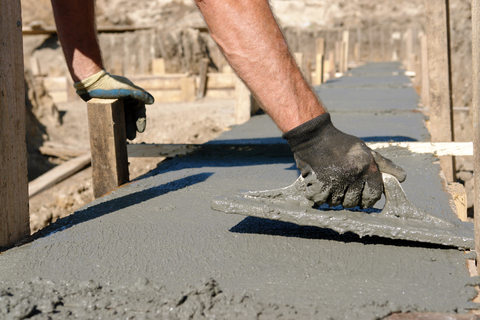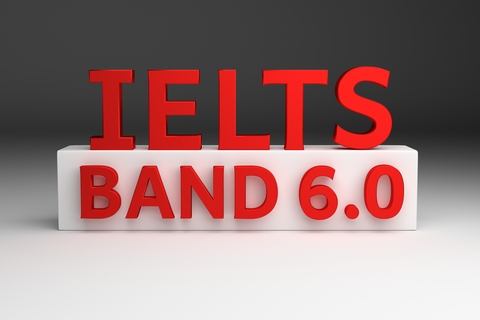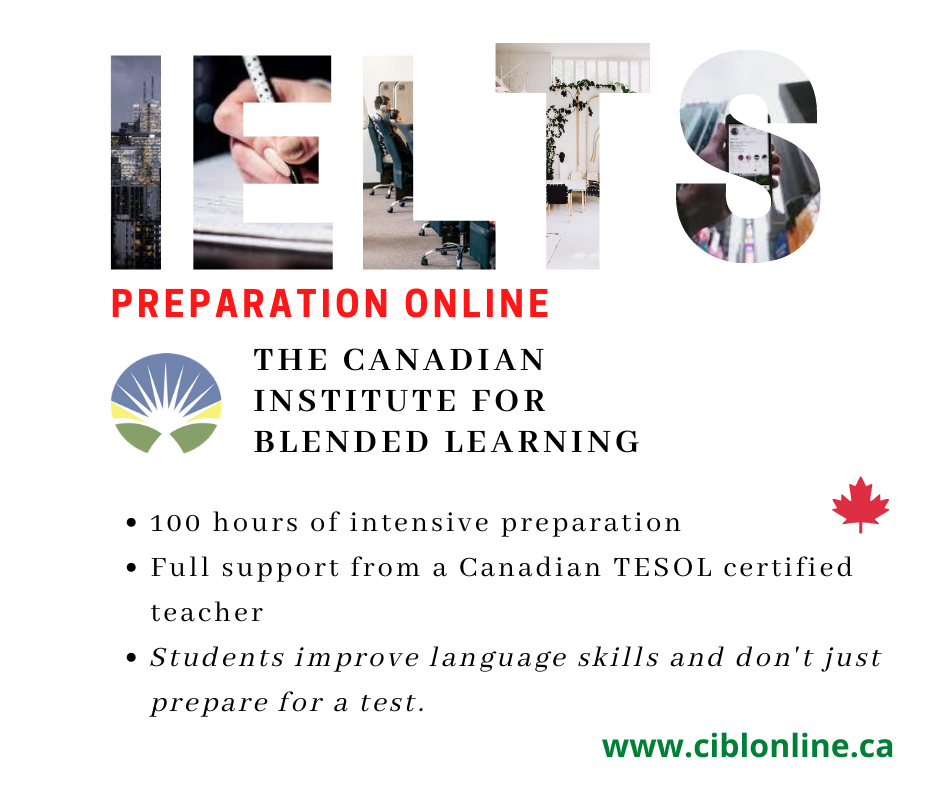Trade Worker Program
-
The Federal Skilled Trades Program is for a person who wants to become a permanent resident based on their being qualified in a skilled trade.
In order for someone to qualify under this program, the individual must:
- Either have a qualification certificate in trades issued by a Canadian Province or Territory, or
- They have obtained a valid job offer (LMIA) issued by at least one employer.
The qualification certificate can be obtained in two ways. The applicant either has studied in Canada and completed a program in a specific trade and achieved a certificate. There is an Alternative route for those applying from overseas. They can have past work experience acquired in any country outside of Canada, and then assessed by a trade authority of any province in Canada. After this they become eligible to challenge the exam, and upon clearing the exam they acquire a certificate. We can assist you in the process of having your past work experience assessed by the Trade Authorities.
To acquire a valid job offer, the applicant must have a Canadian Employer apply for a Labour Market Impact Assessment (LMIA) on their behalf. Once a positive LMIA is received it can be used to apply for Permanent Residency under the Federal Skill Trade Program.

Complete this form, and submit to our professional staff, you will be contacted within 2 business days by our company with a solution Apply today!
-
To be eligible, you must:
- plan to live outside the province of Quebec (Note: The province of Quebec selects its own skilled workers.
- meet the required levels in English or French for each language ability (speaking, reading, writing and listening),
- have at least two years of full-time work experience (or an equal amount of part-time work experience) in a skilled trade within the five years before you apply,
- meet the job requirements for that skilled trade as set out in the National Occupational Classification (NOC), except for needing a certificate of qualification, and
- have an offer of full-time employment for a total period of at least one year or a certificate of qualification in that skilled trade issued by a Canadian provincial or territorial authority.
- Work Experience means that you have to work a total of at least 30 hours over a period of one week for two years in your skilled trade within the five years before you apply. For example:
- 30 hours/week for 12 months = 1 year full time (1,560 hours)
- 15 hours/week for 24 months = 1 year full time (1,560 hours) OR 30 hours/week for 12 months at more than one job = 1 year full time (1,560 hours)
- Up to two employers can commit to employing you for at least one year of continuous full-time work, meaning a total of at least 30 hours of work per week.
- In Canada, provinces and territories issue certificates of qualification in the skilled trades. To get a certificate, the provincial or territorial trade’s authority must assess your training, trade experience and skills to decide if you are eligible to write an exam to be certified.
Skilled Trades currently eligible for the Federal Skilled Trades Program are organized under these major and minor groups of the NOC:
- Major Group 72, industrial, electrical and construction trades,
- Major Group 73, maintenance and equipment operation trades,
- Major Group 82, supervisors and technical jobs in natural resources, agriculture and related production,
- Major Group 92, processing, manufacturing and utilities supervisors and central control operators,
- Minor Group 632, chefs and cooks, and
- Minor Group 633, butchers and bakers.
These major NOC groups are subdivided into different occupations. (All are NOC skill type B.)
You must show that you did the duties set out in the lead statement of the occupational description in the NOC, including all the essential duties and most of the main duties listed.
If you do not show that your experience meets the description in the NOC, CIC will not accept your application.
Federal Skilled Trades Program applications must be made based on the 2011 version of the NOC. However, if the application includes a Labour Market Impact Assessment (previously Labour Market Opinion or LMO) from Employment and Social Development Canada based on the 2006 version of the NOC, it will be accepted by CIC as long as the applicant’s occupation corresponds to a 2011 NOC code that is eligible for the program.
There is no education requirement for the Federal Skilled Trades Program. But, if you want to earn points for your education under Express Entry, you either need:
- a Canadian post-secondary certificate, diploma or degree
- OR
- a completed foreign credential, and
- an Educational Credential Assessment (ECA) report from an agency approved by CIC. [The report must show your foreign education is equal to a completed Canadian secondary (high school) or post-secondary certificate, diploma or degree.]
- Note: You will only benefit from getting an ECA if your foreign education is equal to a completed Canadian high school diploma or greater.
You must:
- meet the minimum language level of Canadian Language Benchmark (CLB) 5 for speaking and listening, and Canadian Language Benchmark (CLB) 4 for reading and writing, and
- take a language test approved by Citizenship and Immigration Canada (CIC) that shows you meet the level for speaking, listening, reading and writing.
You must show that you meet the requirements in English or French by including the test results when you complete your Express Entry profile. Your test results must not be more than two years old on the day you apply for permanent residence.
If you are married or live with a common-law partner who also meets the above conditions, you can decide which one of you will apply under Express Entry as the principal (main) applicant.
A common-law partner is a person who has lived with you in a conjugal relationship for at least one year. Common-law partner refers to both opposite-sex and same-sex couples.
Check to see which one of you is most likely to be found eligible. That person should apply as the principal applicant.
- You must be admissible to Canada.
- You must plan to live outside the province of Quebec.
Be assessed by the province or territory
You will likely have to go to the province or territory to be assessed. You may also need an employer in Canada to give you experience and training.
You should go to the website of the body that governs trades for the province/territory where you would like to live and work. The process is different depending on where you want to go.
An Educational Credential Assessment (ECA) is used to verify that your foreign degree, diploma, certificate (or other proof of your credential) is valid and equal to a Canadian one.
Who needs an ECA?
If you have a Canadian degree, diploma or certificate, you do not need to get an ECA for that credential.
You will need to get an ECA for your foreign degree, diploma or certificate if:
- you want to be considered for the Federal Skilled Worker Program (FSWP) under Express Entry, and
- you are a principal applicant, and
- you got your education outside Canada, or
- you want to receive Comprehensive Ranking System (CRS) points for your foreign education
- for yourself as an Express Entry candidate, or
- for your spouse or common-law partner coming with you to Canada.
To be eligible under a) or to get points under b) you must include ECA results as part of your Express Entry profile.
The ECA report must show that your completed foreign credential (degree, diploma or certificate) is equal to a completed Canadian secondary school (high school) or post-secondary credential.
You must submit an ECA for all levels of completed foreign education you want IRCC to consider. It is up to you to decide which credentials to have assessed by a designated organization.
Depending on your case, you may want to have both your secondary and post-secondary credentials assessed, and not just your highest completed foreign credential. You will not get any points for your foreign education under the CRS in Express Entry or be eligible under the FSWP if the result on your ECA report does not match at least one of the results in the conversion table.
Note: An ECA can give you early feedback on how your credentials compare to those in Canada. It may also help when you are looking for a job. But, being assessed does not guarantee that:
- you will get a job in your field or at a certain level,
- your work experience and professional credentials are automatically recognized in Canada, or
- you will be licensed to practice in a regulated profession.
Please check Job Bank to learn more about the job market outlook for your occupation in the specific region where you plan to settle.
If you plan to work in a regulated profession, you must still get your licence in the province or territory that you plan on settling in.
A regulatory authority will decide if you can be licensed in a profession. They will assess factors such as your education, experience/competencies and language skills, as well as other factors.
You should contact the regulatory authority in the province where you plan to live as soon as possible. They can give you information about the process for being licensed, including steps you can take before you leave your home country.
IRCC will only accept an ECA from one of the organizations designated by Citizenship and Immigration Canada (CIC) (below).
The original ECA report must:
- be issued on or after the date CIC designated the organization,
- not be more than five years old on the date that CIC gets a) your Express Entry profile, and b) your application for permanent residence, and
- show your credential(s) is equal to a completed Canadian one.
Note: You will have to provide the reference number from the ECA report in your Express Entry profile, as well as in your application for permanent residence (along with proof of your foreign credential). If IRCC cannot validate the number you enter, you will need to provide an electronic copy to confirm. Keep a copy in case IRCC needs to see it.
If you are invited to apply for permanent residence and you do not include this assessment and proof of your foreign credential when you apply, your application is not complete and will not be accepted for processing. Any fees submitted will be returned and you will need to submit a new Express Entry profile to be considered in the future.

Complete this form, and submit to our professional staff, you will be contacted within 2 business days by our company with a solution Apply today!
-
- You will need to take a language test. IRCC will use your test results to see if you are eligible to immigrate to Canada under one of the federal programs that are part of Express Entry.
- If you were educated outside Canada, you may need to have your educational credentials assessed against Canadian standards.
- you got at least one year of recent work experience in Canada, or
- your work experience is in a skilled trade (skilled manual work).
- You need to know the skill type of the job your work experience is in (as well as the job you plan to have in Canada, if they are different). You will use Canada’s job classification system (the National Occupational Classification or NOC) to find out whether your work experience is valid under one of the three federal programs.
This is not mandatory if:
Note: Even if you do not need to have your foreign education assessed to be eligible under Express Entry, you may want to do so in order to increase your score and chances of being invited to apply.
This job code is referred to as your "NOC code" in the Express Entry profile. See Find your NOC to find the NOC information that best matches your jobs.
You will need this information again, so make sure to write it down and keep it with the other papers you need, such as your passport.
You can use our online tool, Come to Canada, to see if you meet the criteria to get into the Express Entry pool. It will take you about 15 minutes.
You will need your language test results, your NOC skill type or level described above and your Education Credential Assessment (ECA).
When you get to the end, a reference number will show on the screen. Write it down. You will need it later when you go to build your profile.
If you get a positive result from Come to Canada, it will send you to your account. If you do not already have an account, you will need to create one. Then you will fill out an Express Entry profile to tell IRCC about your:
- identity
- contact information
- education in more detail
- work experience in more detail
- language
- family who would come with you to Canada (dependants)
You will need:
- your passport or travel document (or other national identity document, if you do not have one of these)
- your NOC job title and code (see Before you start, above)
- your language test results (either IELTS, CELPIP or TEF)
- your Educational Credential Assessment result, if you have one (see Before you start, above)
- a copy of your written job offer from an employer in Canada, if you have one
- a copy of your provincial nomination, if you have one, and
- your personal reference code from the Come to Canada tool, if you have one. (It looks like this: JM1234567890. IRCC uses it to bring the answers you provided in the tool into your account so you do not have to answer the questions again. If you go to the profile builder directly through your account, you will not have one.)
- Follow the instructions to create an account if you do not already have one. The system will give you a number that you will use each time you sign in.
- If you have a personal reference code from the Come to Canada tool, enter it when it prompts you. If you do not have a code, go to Step 3.
- Enter your personal details, work experience, education, etc.
- Submit your profile online.
(Note: You may exit the profile at any time. Your information will be saved. But, if you do not complete the Express Entry profile in 90 days, you will not be able to submit it and will have to start again.)
If you meet the Express Entry criteria, including the requirements for at least one of the three immigration programs, you will be accepted into the Express Entry pool of candidates. If you are invited to apply for permanent residence, IRCC will tell you at that time which program to apply under.
Important: Submitting an Express Entry profile does not mean you have applied for permanent residence, or that you will be invited to. If IRCC invites you to apply, you will then need to give IRCC more information in your application for permanent residence.
If you are eligible
The Express Entry pool
If you meet the requirements, IRCC will place you into the Express Entry pool of candidates. You will get a message in your account to let you know.
You will be given a score using a ranking system based on factors that have been shown to help immigrants prosper in Canada. The higher your score, the more likely you are to be invited to apply for permanent residence. IRCC plans to issue Invitations to Apply to candidates from the pool regularly.
If you are accepted into the Express Entry pool, you should start getting any supporting documents you may need for your application for permanent residence. You could get an invitation to apply at any time.
You will have a better chance of being invited to apply if you:
- are nominated by a province or territory, or
- have a valid job offer from an employer in Canada.
You will get extra points for these factors.
Note: you must update the information in your profile if your situation changes. For example, if:
- there are changes to your work experience.
- you get a different language test result,
- you complete more education,
- there is a change in your family, such as the birth of a child or a divorce, or
- one of your children is no longer a dependent (including if they turn 19 during this time).
If you get an invitation to apply, you can apply for permanent residence. You will be invited only if you:
- have been nominated by a province or territory, or
- are among the top ranked in the pool based on your skills and experience.
If you are invited, you will have 90 days to apply online for permanent residence.
You must submit a complete application with all supporting documents or IRCC will reject your application.
Once you complete your application and submit it online, IRCC will process it quickly. IRCC processes most applications through Express Entry in six months or less, however, the time can vary based on your situation.. (This period starts on the date IRCC gets a complete application and ends on the date a final decision is made.
You will have to include copies of all documents IRCC asks you for, like police certificates, before IRCC will process your application. To keep your application from being rejected, you may want to get some of these documents ready while you are in the Express Entry pool.
To be eligible, you must:
- plan to live outside the province of Quebec (Note: The province of Quebec selects its own skilled workers. If you plan on living in Quebec, see Quebec-selected skilled workers for more information),
- meet the required levels in English or French for each language ability (speaking, reading, writing and listening),
- have at least two years of full-time work experience (or an equal amount of part-time work experience)* in a skilled trade within the five years before you apply,
- meet the job requirements for that skilled trade as set out in the National Occupational Classification (NOC), except for needing a certificate of qualification, and
- have an offer of full-time employment for a total period of at least one year or a certificate of qualification in that skilled trade issued by a Canadian provincial or territorial authority.
Skilled Trades currently eligible for the Federal Skilled Trades Program are organized under these major and minor groups of the NOC:
- Major Group 72, industrial, electrical and construction trades,
- Major Group 73, maintenance and equipment operation trades,
- Major Group 82, supervisors and technical jobs in natural resources, agriculture and related production,
- Major Group 92, processing, manufacturing and utilities supervisors and central control operators,
- Minor Group 632, chefs and cooks, and
- Minor Group 633, butchers and bakers.
These major NOC groups are subdivided into different occupations. (All are NOC skill type B.)
You must show that you did the duties set out in the lead statement of the occupational description in the NOC, including all the essential duties and most of the main duties listed.
If you do not show that your experience meets the description in the NOC, CIC will not accept your application.
Federal Skilled Trades Program applications must be made based on the 2011 version of the NOC. However, if the application includes a Labour Market Impact Assessment (previously Labour Market Opinion or LMO) from Employment and Social Development Canada based on the 2006 version of the NOC, it will be accepted by CIC as long as the applicant’s occupation corresponds to a 2011 NOC code that is eligible for the program.
There is no education requirement for the Federal Skilled Trades Program. But, if you want to earn points for your education under Express Entry, you either need:
- a Canadian post-secondary certificate, diploma or degree
- a completed foreign credential, and
- an Educational Credential Assessment (ECA) report from an agency approved by CIC. [The report must show your foreign education is equal to a completed Canadian secondary (high school) or post-secondary certificate, diploma or degree.]
OR
Note: You will only benefit from getting an ECA if your foreign education is equal to a completed Canadian high school diploma or greater.
You must:
- meet the minimum language level of Canadian Language Benchmark (CLB) 5 for speaking and listening, and Canadian Language Benchmark (CLB) 4 for reading and writing, and
- take a language test approved by Citizenship and Immigration Canada (CIC) that shows you meet the level for speaking, listening, reading and writing.
You must show that you meet the requirements in English or French by including the test results when you complete your Express Entry profile. Your test results must not be more than two years old on the day you apply for permanent residence.

Complete this form, and submit to our professional staff, you will be contacted within 2 business days by our company with a solution Apply today!
-
The Comprehensive Ranking System (CRS) is the points-based system IRCC uses to assess and score your profile and rank you in the Express Entry pool.
The CRS gives you a score from your profile answers, including your:
- skills
- education
- language ability
- work experience
- other factors
The CRS also gives you points for:
- Canadian degrees, diplomas or certificates
- a valid job offer
- a nomination from a province or territory
IRCC regularly sends invitations to apply to the highest-ranking candidates in the pool. If you are invited, you can apply to immigrate as a permanent resident.
The points you get from the CRS include a core set of points up to 600 and a set of additional points of up to 600. Your total score will be out of 1,200. It is based on the four parts of the CRS formula:
Core: Up to 600 points
- Skills and experience factors
- Spouse or common-law partner factors, such as their language skills and education
- Skills transferability, including education and work experience
- Additional: Up to 600 points for:
- Canadian degrees, diplomas or certificates
- a valid job offer
- a nomination from a province or territory
Core points + Additional points = Your total score
A. Single candidates B. Candidates spouses or common-law partners that will come with them to Canada (The maximum number of points is the same no matter the person’s marital status) Core 1. Skills and experience factors (maximum 500)+ 1. Skills and experience factors (maximum 460)+ 2. N/A+ 2. Spouse or common-law partner factors (maximum 40)+ 3. Skill transferability factors (maximum 100) + 3. Skill transferability factors (maximum 100) + Additional 4. points (maximum 600) 4. points (maximum 600) Grand total (maximum 1,200) Grand total (maximum 1,200)
A. Core / human capital factors Factors Points per factor - With a spouse or common-law partner Points per factor - Without a spouse or common-law partner Age 100 110 Level of education 140 150 Official languages proficiency 150 160 Canadian work experience 70 80 B. Spouse or common-law partner factors Factors Points per factor (Maximum 40 points) Level of education 10 Official language proficiency 20 Canadian Work Experience 10
A. Core/human capital + B. Spouse or common-law partner + C. Transferability factors = Maximum 600 points
C. Skill Transferability factors (Maximum 100 points) Education Points per factor(Maximum 50 points) With good/strong official languages proficiency and a post-secondary degree 50 With Canadian work experience and a post-secondary degree 50 Foreign Work Experience Points per factor(Maximum 50 points) With good/strong official languages proficiency (Canadian Language Benchmark [CLB] level 7 or higher) and foreign work experience 50 With Canadian work experience and foreign work experience 50 Certificate of qualification (for people in trade occupations) Points per factor(Maximum 50 points) With good/strong official languages proficiency and a certificate of qualification 50
A. Core/human capital + B. Spouse or common-law partner + C. Transferability factors = Maximum 600 points
D. Additional points (Maximum 600 points) Factor Maximum points per factor Brother or sister living in Canada (citizen or permanent resident) 15 French language skills 30 Post-secondary education in Canada 30 Arranged employment 200 PN nomination 600 A. Core/human capital + B. Spouse or common-law partner factors + C. Transferability factors + D. Additional points = Grand total – Maximum 1,200 points
Points breakdown, section by section
CRS – A. Core / human capital factors
- With a spouse or common-law partner: Maximum 460 points total for all factors.
- Without a spouse or common-law partner: Maximum 500 points total for all factors.
Age With a spouse or common-law partner(Maximum 100 points) Without a spouse or common-law partner(Maximum 110 points) 17 years of age or less 0 0 18 years of age 90 99 19 years of age 95 105 20 to 29 years of age 100 110 30 years of age 95 105 31 years of age 90 99 32 years of age 85 94 33 years of age 80 88 34 years of age 75 83 35 years of age 70 77 36 years of age 65 72 37 years of age 60 66 38 years of age 55 61 39 years of age 50 55 40 years of age 45 50 41 years of age 35 39 42 years of age 25 28 43 years of age 15 17 44 years of age 5 6 45 years of age 0 0 Level of Education With a spouse or common-law partner(Maximum 140 points) Without a spouse or common-law partner(Maximum 150 points) Less than secondary school (high school) 0 0 Secondary diploma (high school graduation) 28 30 One-year degree, diploma or certificate from a university, college, trade or technical school, or other institute 84 90 Two-year program at a university, college, trade or technical school, or other institute 91 98 Bachelor's degree OR a three or more year program at a university, college, trade or technical school, or other institute 112 120 Two or more certificates, diplomas, or degrees. One must be for a program of three or more years 119 128 Master's degree, OR professional degree needed to practice in a licensed profession (For “professional degree,” the degree program must have been in: medicine, veterinary medicine, dentistry, optometry, law, chiropractic medicine, or pharmacy.) 126 135 Doctoral level university degree (Ph.D.) 140 150
Maximum points for each ability (reading, writing, speaking and listening):
- 32 with a spouse or common-law partner
- 34 without a spouse or common-law partner
Canadian Language Benchmark (CLB) level per ability With a spouse or common-law partner(Maximum 128 points) Without a spouse or common-law partner(Maximum 136 points) Less than CLB 4 0 0 CLB 4 or 5 6 6 CLB 6 8 9 CLB 7 16 17 CLB 8 22 23 CLB 9 29 31 CLB 10 or more 32 34 Official languages proficiency - second official language
Maximum points for each ability (reading, writing, speaking and listening):
- 6 with a spouse or common-law partner (up to a combined maximum of 22 points)
- 6 without a spouse or common-law partner (up to a combined maximum of 24 points)
Canadian Language Benchmark (CLB) level per ability With a spouse or common-law partner(Maximum 22 points) Without a spouse or common-law partner(Maximum 24 points) CLB 4 or less 0 0 CLB 5 or 6 1 1 CLB 6 3 3 CLB 7 6 6 Canadian work experience With a spouse or common-law partner (Maximum 70 points) Without a spouse or common-law partner (Maximum 80 points) Non or less than a year 0 0 1 year 35 40 2 year 46 53 3 year 56 64 4 year 63 72 5 year or more 70 80 Subtotal: A. Core / human capital factors
- With a spouse or common-law partner – Maximum 460 points
- Without a spouse or common-law partner – Maximum 500 points
CRS – B. Spouse or common-law partner factors (if applicable)
Spouse’s or common-law partner’s level of education With spouse or common-law partner(Maximum 10 points) Without spouse or common-law partner(Does not apply) Less than secondary school (high school) 0 n/a Secondary school (high school graduation) 2 n/a One-year program at a university, college, trade or technical school, or other institute 6 n/a Two-year program at a university, college, trade or technical in school, or other institute 7 n/a Bachelor's degree OR a three or more year program at a university, college, trade or technical school, or other institute 8 n/a Two or more certificates, diplomas, or degrees. One must be for a program of three or more years 9 n/a Master's degree, or professional degree needed to practice in a licensed profession (For “professional degree”, the degree program must have been in: medicine, veterinary medicine, dentistry, optometry, law, chiropractic medicine, or pharmacy.) 10 n/a Doctoral level university degree (PhD) 10 n/a Note: (n/a) means that this factor does not apply in this case.
Spouse's or common-law partner's official languages proficiency - first official language
Canadian Language Benchmark (CLB) level per ability (reading, writing, speaking and listening ) Maximum 20 points for section Maximum 5 points per ability Without spouse or common-law partner (Does not apply) CLB 4 or less 0 n/a CLB 5 or 6 1 n/a CLB 7 or 8 3 n/a CLB 9 or above 5 n/a Note: (n/a) means that this factor does not apply in this case.
Spouse's Canadian work experience Maximum 10 points Without spouse or common-law partner (Does not apply) None or less than a year 0 n/a 1 year 5 n/a 2 year 7 n/a 3 year 8 n/a 4 year 9 n/a 5 year 10 n/a Note: (n/a) means that this factor does not apply in this case.
Subtotal : A. Core / human capital + B. Spouse or common-law partner factors = Maximum 500 points
CRS – C. Skill transferability factors (Maximum 100 points for this section)
With good official language proficiency (Canadian Language Benchmark Level [CLB] 7 or higher) and a post-secondary degree Points for CLB 7 or more on all first official language abilities, with one or more under CLB 9 (Maximum 25 points) Points for CLB 9 or more on all four first official language abilities (Maximum 50 points) Secondary school (high school) credential or less 0 0 Post-secondary program credential of one year or longer 13 25 Two or more post-secondary program credentials AND at least one of these credentials was issued on completion of a post-secondary program of three years or longer 25 50 With Canadian work experience and a post-secondary degree Points for education + 1 year of Canadian work experience (Maximum 25 points) Points for education + 2 years or more of Canadian work experience (Maximum 50 points) Secondary school (high school) credential or less 0 0 Post-secondary program credential of one year or longer 13 25 Two or more post-secondary program credentials AND at least one of these credentials was issued on completion of a post-secondary program of three years or longer 25 50 Foreign work experience – With good official language proficiency (Canadian Language Benchmark Level [CLB] 7 or higher)
Years of experience Points for foreign work experience + CLB 7 or more on all first official language abilities, one or more under 9 (Maximum 25 points) Points for foreign work experience + CLB 9 or more on all four first official language abilities (Maximum 50 points) No foreign work experience 0 0 1 or 2 years of foreign work experience 13 25 3 years or more of foreign work experience 25 50 Foreign work experience – With Canadian work experience
Years of experience Points for foreign work experience + 1 year of Canadian work experience(Maximum 25 points) Points for foreign work experience + 2 years or more of Canadian work experience (Maximum 50 points) No foreign work experience 0 0 1 or 2 years of foreign work experience 13 25 3 years or more of foreign work experience 25 50 Certificate of qualification (trade occupations) – With good official language proficiency (Canadian Language Benchmark Level [CLB] 5 or higher) Points for certificate of qualification + CLB 5 or more on all first official language abilities, one or more under 7 (Maximum 25 points) Points for certificate of qualification + CLB 7 or more on all four first official language abilities (Maximum 50 points) With a certificate of qualification 25 50 Subtotal: A. Core / human capital + B. Spouse or common-law partner + C. Skill transferability factors - Maximum 600 points
CRS – D. Additional points (Maximum 600 points)
Additional points Maximum 600 points Brother or sister living in Canada who is a citizen or permanent resident of Canada 15 Scored NCLC 7 or higher on all four French language skills and scored CLB 4 or lower in English (or didn’t take an English test) 15 Scored NCLC 7 or higher on all four French language skills and scored CLB 5 or higher on all four English skills 30 Post-secondary education in Canada - credential of one or two years 15 Post-secondary education in Canada - credential three years or longer 30 Arranged employment - NOC 00 200 Arranged employment – any other NOC 0, A or B 50 Provincial or territorial nomination 600 Subtotal: D. Additional points – Maximum 600 points
Grand total: A. Core / human capital + B. Spouse or common-law partner + C. Skill transferability factors + D. Additional points = Maximum 1,200 points

Complete this form, and submit to our professional staff, you will be contacted within 2 business days by our company with a solution Apply today!
-
If you are invited to apply for permanent residence, you will need to show proof of the information you gave IRCC in your Express Entry profile. IRCC will refuse your application if the information in your profile is different from what you submitted in your application.
If IRCC invites you to apply, you will get a message in your account telling you:
- which program you are invited under, and
- what to do next.
- your application could be refused,
- you could be found inadmissible, and
- you could be barred for five years from applying to come to Canada for any reason.
If IRCC finds that you misrepresented yourself (gave IRCC false information or left out important details), IRCC will refuse your application. In that case:
You should start to get your documents ready as soon as you are accepted into the Express Entry pool.
If IRCC invites you to apply, you will have 90 days to fill out your application for permanent residence and submit all supporting documents. Having your documents ready will make it easier to apply within the 90 days.
Check that your language test results will still be valid on the date you plan to apply for permanent residence. If your results expire before then, you should:
- be tested again,
- apply before your test results expire, or
- decline the invitation and go back into the pool to be considered in the future.
If you apply for permanent residence with language test results that have expired, IRCC will refuse your application.
If you submit more than one valid test, IRCC will use the test with the highest scores to assess your application.
You will need to get police certificates for you and each of your family members who are over 18. You must get one from each country or territory where you have spent six or more months since the age of 18.
For countries where you have lived for six months or more, the police certificate must be issued after the last time you lived in that country.
In some countries, it can take a long time to get police certificates. If you did not start the process to get them before you were invited to apply, you should do this right away, so you can submit them before the 90 days are up.
You can check the criteria for the program you have been directed to apply under to see if you are still eligible.
By understanding your program requirements, you will be more prepared to apply to Citizenship and Immigration Canada. It will also help you decide whether or not to accept an invitation to apply if you are issued one.
If your situation (or that of your spouse or partner) changes, you should re-calculate your score before applying online for permanent residence.
If your recalculated score is less than the lowest score in your round of invitations for an invitation to apply, you should decline the invitation.
Warning: In this case, if you decide to apply, IRCC may refuse your application and will not refund your application fee.
Some examples of changes which could lower your score:
- you no longer have a valid job offer
- you no longer have a provincial nomination
- your language test scores have expired, or you re-took them and they are lower

Complete this form, and submit to our professional staff, you will be contacted within 2 business days by our company with a solution Apply today!
-
There are things that you can do to improve your score and increase your chances of being invited to apply. For example, you may want to:
- secure a valid job offer using:
- Job Bank, or
- by promoting yourself to employers in Canada using private sector job boards,
- contact provinces and territories to be considered in a Provincial Nominee Program,
- improve your language score,
- improve your education, or
- gain more relevant work experience.

Complete this form, and submit to our professional staff, you will be contacted within 2 business days by our company with a solution Apply today!






